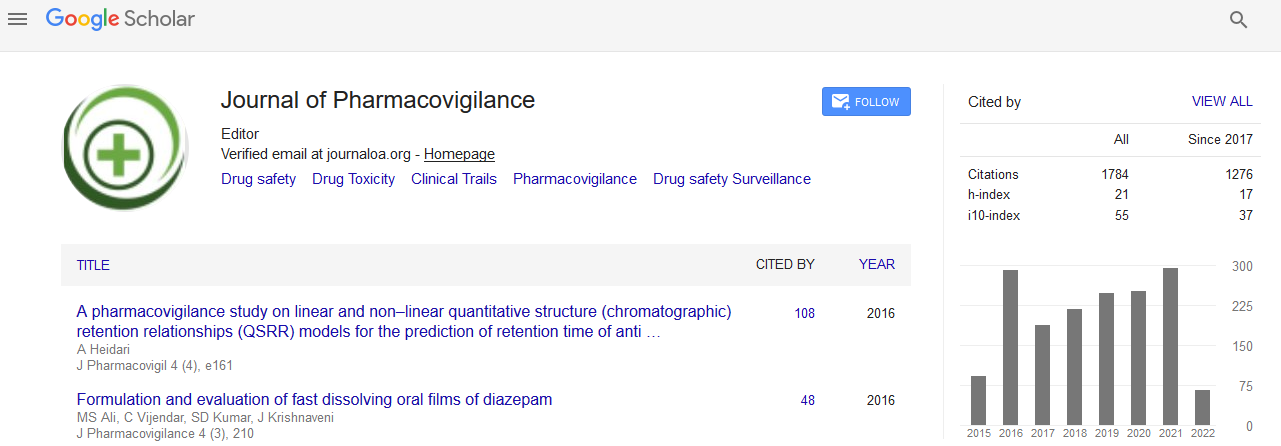Indexed In
- Open J Gate
- JournalTOCs
- The Global Impact Factor (GIF)
- RefSeek
- Hamdard University
- EBSCO A-Z
- OCLC- WorldCat
- Publons
- Euro Pub
- Google Scholar
Useful Links
Share This Page
Journal Flyer

Open Access Journals
- Agri and Aquaculture
- Biochemistry
- Bioinformatics & Systems Biology
- Business & Management
- Chemistry
- Clinical Sciences
- Engineering
- Food & Nutrition
- General Science
- Genetics & Molecular Biology
- Immunology & Microbiology
- Medical Sciences
- Neuroscience & Psychology
- Nursing & Health Care
- Pharmaceutical Sciences
Herb and drugs interactions in oncology
2nd International Conference and Exhibition on Pharmacovigilance & Clinical Trials
November 18-19, 2013 Hilton San Antonio Airport, TX, USA
Tanawan Kummalue
Scientific Tracks Abstracts: J Pharmacovigilance
Abstract:
The use of herbal medicine among the oncologic patients after diagnosed is very common worldwide varying from 26.5-68%. In Thailand, the prevalence of the herbal usage is high due to the patients? desire for long term survival, and the improvement of the bodies. Some patients use herbal medicine as their first choice, but some use herbs as their final therapies after failure from conventional medicine without notifying to their doctors. The interactions between herbs, drugs, and chemotherapeutic agents are the most concern in physicians because herb-drug interactions can interfere with the efficacy of the treatment and clinical outcome of cancer patients especially at the level of cytochrome metabolism and P-glycoprotein transport. In oncology, the herb-drug interactions can occur at the pharmacodynamic or pharmacokinetic level. At the pharmacokinetic level, which is the most common interactions found, the changes in absorption, distribution, metabolisms, and excretion of chemotherapeutic agents can be observed. Based on previous reports, almost all pharmacokinetic interactions are involved in the level of cytochrome P450 (CYP) metabolizing enzymes especially CYP3A4. Herbs that can inhibit the activity of CYP enzymes are ginseng, primrose oil, and kava, etc. Many anticancer drugs, such as doxorubicin, can act as the substrates for ATP-binding cassette (ABC) family of drug transporters like P-glycoprotein (Pgp), or multidrug resistance associated protein 1 (MRP-1). Therefore, this will lead to the low plasma level of the chemotherapeutic agents and consequently treatment failure. Interestingly, curcumin, quercetin, and some products from green tea are shown to inhibit Pgp activity. In conclusion, herbal usage in cancer patients may result in low therapeutic efficacy because of herb-drug interactions. This aspect is important nowadays because ingestion of herbal medicine is very common. Further investigations and studies on herbdrug interaction in oncology are still needed.
Biography :
Tanawan Kummalue has completed her M.D. and Board of Hematology from Faculty of Medicine Siriraj Hospital, Mahidol University. She also finished her research fellow for 3 years in oncology field at Johns Hopkins University. Now she is Associate Professor in Department of Clinical Pathology at Faculty of Medicine Siriraj Hospital. Her research interest is Thai herbal medicine for treatment of malignancies involving mechanisms of actions. She has published more than 30 papers in national and international journals since then.


